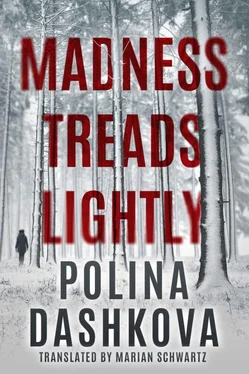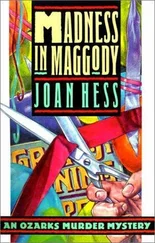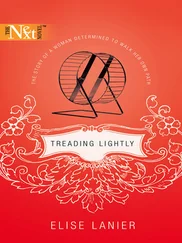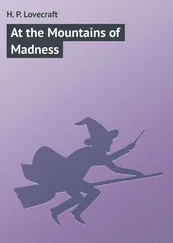Tobolsk, September 1981
He liked recalling his childhood. Each time he would drag up an especially hard, painful episode and start reproducing it mentally in all its details. The more agonizing the details, the longer he dwelled on them.
He’d grown up a quiet, dutiful boy. His mother watched his every step, his every breath.
“You’re the grandson of a legendary Red commander,” she would repeat. “You have to be worthy of your grandfather. He was a great man.”
The little boy didn’t really understand what it meant to be worthy of his grandfather. A stern, broad-faced man with a blond mustache wearing a leather jacket and a shoulder belt gazed at him from the many portraits, large and small, hung all over the apartment. There was nothing else on the walls—no pictures or calendars, just portraits of his legendary grandfather. On his mother’s desk there were small bronze busts of the two great leaders, Lenin and Stalin. Venya Volkov always gave his all, dusting their small, cold faces and scrubbing their bronze eyes and mustaches with tooth powder. Venya Volkov always tried his hardest. Cleaning the apartment had been his chore since he was seven, and his mother assiduously checked the quality of his work.
Once, noticing a white spot under Stalin’s eye—tooth powder—she’d slapped the boy’s cheeks. He was ten at the time.
He wasn’t surprised at the punishment. He considered it wholly deserved. But for the first time he was struck by his mother’s perfectly calm, indifferent face. Methodically dealing those ringing slaps, she stared into her son’s eyes and repeated, “There are no accidents in life. There’s always an intention behind carelessness. Carelessness is a crime.”
Lots of his classmates were beaten by their parents, but it was mainly the fathers doing the beating—on a bender, or hungover, or if the kid just turned up at the wrong time. Fathers spanked them or used their belts. And the mothers, as a rule, interceded.
Venya Volkov was beaten by his mother, but always on the cheeks, with the flat of her hand, so it didn’t hurt. His cheeks just burned afterward. She never did it because she was drunk or angry. She didn’t drink at all. She was always sober, even-tempered, and calm. His father didn’t intercede. He was very quiet and unremarkable, as if he weren’t there at all. He worked as an engineer in a bread factory, where he spent days on end, and sometimes even nights. His mother never beat Venya in front of his father, not because she was afraid, it was just that his father was so rarely at home. And Venya didn’t tell his father anything.
He never told anyone anything.
His entire paternal upbringing came down to one line, repeated endlessly, like a mantra: “Your mama is the purest, most principled person in the world. She’s a saint. Everything she does is for your good. You should be proud of your mother and obey her in everything.”
His mother was the Communist Party secretary at the same bread factory. She was always elected deputy to the City Council, and her photograph was displayed in the central square, on the “City’s Best” honor board.
He obeyed her but he wasn’t proud of her. Someone who gets his cheeks slapped at least twice a week is hardly going to be proud of anything or anyone. Now, sitting in his small, smoke-filled office, Veniamin Volkov, head of the Culture Department of the Tobolsk Young Communists Committee, a tall, blond, and skinny twenty-six-year-old, was gazing at the papers spread out on his desk, and, for the umpteenth time, replaying one of the most painful scenes of his childhood.
…It was an icy Siberian February with penetrating, stinging winds. Venya had forgotten his gym uniform and was running home for it between classes.
Venya flew through the blizzard. He was afraid of being late for gym because his teacher would be sure to note it on his record.
His father was home with the flu. Thinking he must be asleep, Venya quietly opened the door with his key. He froze on the threshold.
Strange sounds were coming from his parents’ room—the rhythmic creaking of box springs and soft, muffled groans, a man’s and a woman’s.
Venya tiptoed up and peeked through the cracked door. Two naked bodies were writhing on his parents’ bed. One belonged to his father, the other to their young neighbor, Larochka, a twenty-year-old library student. Venya had heard she was home with the flu, too.
This Larochka from the apartment across the way, a small, pudgy little brunette with a turned-up nose and merry dimples, had long provoked a strange feeling in Venya that he couldn’t make sense of or define. He ran into her every day. Once as they were leaving the building, he for high school, she for library school, she patted the boy affectionately on the cheek in passing as she ran lightly down the creaking wooden stairs.
She smelled of sweet, cheap perfume, and her round, brightly lipsticked little mouth was always a little bit open, as if ready to spread into a delighted smile. Her large snow-white teeth shone wetly, and her two front teeth were a little bigger than the others, which made her round little face seem funny and touching.
Venya stood there looking at the two bodies bouncing rhythmically on the bed. He saw their faces and the agonizing bliss written on them, saw their closed eyes and slightly bared teeth.
He didn’t immediately realize what they were doing. At first the rhythmic bouncing reminded him of another memory, of two stray dogs copulating near the garbage cans behind the school. Only later did he realize that his father and his pretty neighbor were doing the same thing.
All the obscenities, all the mysterious, burning, forbidden conversations in the school toilets, all the anatomical drawings on walls were about this. This was why his pudgy neighbor used bright lipstick and sweet perfume, why millions of women on earth did the same, and why there were films, books, and even music about it. Heroes suffered for their love, schemed, shot themselves, went crazy. For the sake of what? For the sake of this ugly rhythmic twitching? For the sake of this filth?
And this and only this was where children came from.
But the worst was the sudden tension in his groin. A searing, almost tingling pain filled his lower belly, and Venya went as taut as a string. A minute later he felt something wet and sticky in his underpants.
He came to his senses out of revulsion for himself. The two on the bed were busy with what they were doing and didn’t notice him. It all lasted no more than five minutes, but to Venya it seemed an eternity.
Trying not to breathe, he dashed for his room, changed clothes quickly and silently, neatly folded his soiled trousers and underpants, and stuffed them under his pillow.
Fifteen minutes later he was in the locker room. He hadn’t forgotten his uniform and was just a little late—the bell hadn’t rung yet but his classmates had already changed for gym class.
The head of the Culture Department of the Tobolsk Young Communists Committee tore his light, transparent eyes from the papers spread on his desk and looked out the window. The day was clear and sunny. Birch leaves tinged with bright yellow grazed the window, trembling ever so slightly in the warm wind. The birch grew right under his window. It was very old. Its thick, rough trunk had blackened as if charred.
There were lots of trees in Tobolsk, most of the buildings were wooden, and the fences were made of thick, unhewn timber. They didn’t spare the forest—there was taiga all around. The city park, almost as dense as the taiga, began at the banks of the Tobol and receded into the distance, becoming utterly primeval. In the daytime there wasn’t a soul; in the evening, not a single light.
Читать дальше












